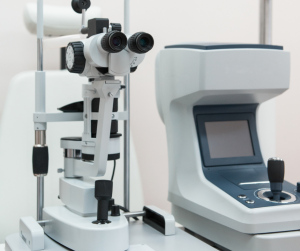It takes a special breed to become a healthcare professional- and a rarer breed still to become the owner of a successful medical practice or healthcare clinic. Whether you’re a physical therapist, a nurse practitioner, a dentist, or any other category of licensed healthcare provider, owning your business brings many benefits, such as better work/life balance, greater independence, and greater financial reward. But you also expose yourself to many risks.
According to the Harvard Business Review, 95% of small business startups fail. The challenges of business ownership are compounded for healthcare professionals because, unfortunately, the fundamentals of business ownership rarely feature in healthcare-related degree programs. Learning the ins-and-outs of navigating the trails of business ownership while simultaneously trying to provide the best care for your patients is challenging to say the least and failing to find balance can land you in trouble – both financially and legally.
There are several ways to avoid burnout (or simply getting burned) including buying an existing clinic or medical practice, or buying a partnership in and existing business – both of which we will explore in greater detail later in this article.
Also there to help – in many cases – is the industry of lenders who cater to healthcare professionals. The form that this support most often takes is medical practice loans. Though they aren’t without risk, these loans can be an invaluable asset in the healthcare professional’s financial toolbox if properly managed. In this article, we’re exploring a few specific examples of how these loans can help your career, and pointing out a few pitfalls to along the way.
What is a medical practice loan?

Medical practice loans often come with better terms and conditions than typical business loans because of stable incomes and market certainty associated with healthcare professionals. Any licensed healthcare professional can take out a medical practice loan, including physicians, nurses, optometrists, veterinarians, physical therapists, and many more.
Though applying for a loan may seem more like a hassle than a helping hand, medical practice loans can reduce risk and help lift the financial burden and the time and stress that comes with that – from doctors who would rather focus on their patients than paperwork.
Even the seemingly tedious application process for a medical practice loan is actually a vital pitstop on the road to stable business ownership. Any lender worth their salt will require extensive documentation, including a business plan and a letter of intent. Rather than roadblocks, these required steps to approval should be looked at as an opportunity to assess your idea and it’s feasibility. Often an idea looks quite different when it’s pulled out of your head and put onto paper.
Types of Medical Practice Loans
There are a variety of medical practice loan options available to physicians. The exact number of options varies between lenders, but they can all be lumped into two general categories: term loans and lines of credit. In this section, we’re exploring the pros and cons of each.
Term Loans
A term loan is a lump sum of cash that a borrower receives in exchange for agreeing to a schedule of regular payments over a fixed period of time. Often, lenders will present you with several repayment options with varying repayment periods. The repayment period can vary from one year to as much as twenty-five. Generally, longer terms are preferred because they mean lower monthly payments and less stress on a practice’s cash flow.
Since these are commercial loans, interest is often tax deductible – though you should check with your tax advisor to confirm whether this applies to your individual case. If so, then whether you want to pay the loan off quickly with higher interest and monthly payments or choose an intermediate or longer term for smaller payments, there’s not much of a downside to either option. Depending on the lender, the interest rate can either be floating or fixed – both have advantages and disadvantages. Choosing which you prefer is really down to preference.
Additionally, depending on the lender, you may have the option to make payments in even amounts throughout your repayment period or have the repayment amount gradually increase over time, similar to income-driven repayment plans for student loans. The latter option assumes your business will generate more cash flow in the future – something that isn’t always guaranteed.
Business Lines of Credit
Business lines of credit function like credit cards. The borrower is authorized to draw from a pre-approved amount of funds and repay when convenient. As with credit cards, there are usually minimum monthly payments required for funds withdrawn. Also, like credit cards, you only pay interest on the amount you borrowed, not the total amount you are approved for.
The advantage of business lines of credit is that rather than receiving one lump sum, which you are required to use for specific purposes, funds are always available for you to spend as needed – as long as you don’t exceed your maximum credit limit and you repay withdrawn funds in a reasonable timeframe.
One disadvantage is higher interest rates Additionally, due to the ongoing nature of funding, it’s easy for expenditures to outpace the profit generated by projects you’re funding through the line of credit. Another potential disadvantage to look out for is that some traditional lenders require your lone of credit to be payed down to zero for a certain period each year.
Because of the hier interest rates, and the potential requirement to pay your balance down to zero each year, lines of credit are best suited to relatively small, periodic expenses such as marketing campaigns.
What can you use medical practice loans for?
There are many ways you can use funds from medical practice loans. But it’s important to understand your needs before applying, as lenders will usually require a letter of intent that lays out specifically how you will use the funding if you are approved.
Acquire a Practice

Medical practice loans are the best way to fund the purchase of an existing medical practice. Medical practice loans can range from $15,000 to more than $500,000, so you can finance the purchase to varying degrees. And since medical practice loans are commercial loans, interest is often tax deductible – though you should check with your tax advisor to confirm that this is true in your particular case. If so you can feel comfortable settling into a long-term repayment plan with a low monthly payment without worrying about racking up obscene amounts of interest.
And don’t forget that medical practice loans aren’t only for physicians. Any licensed healthcare professional can use a medical practice loan to start their business or acquire an existing business. Whether your a dentist, veterinarian, or a physical therapist, you’d be remiss to skip medical practice loans while researching financing options.
That said – it’s important to shop around for the best loan option, as interest rates can be floating or fixed depending on the lender, and compounding interest isn’t unheard of. But, if you do your homework, medical practice loans can be a great way to finance your medical practice startup with a relatively small amount of risk.
Buy-Into a Medical Practice
Physicians get many of the benefits of owning a practice without the risks that come with full ownership when they buy into an existing practice. Becoming a partner in an existing practice means you are eligible to receive a share in the profits, but you also share risk and responsibility with other partners. There is often the option to have the price deducted from your paycheck over a period of time.
Whether you want to go with this option or finance the partnership with a loan depends on your circumstances.
One thing to note: Since the full benefits of membership, including a share in membership interests, are often withheld until a certain amount has been paid toward the buy-in, it may be a while before you see any returns on your investment when funding the purchase through payroll deductions. Funding a partnership buy-in with a loan allows you to enjoy the benefits of partnership sooner, and if you are a higher earner with a high net worth, you may be able to score a loan with low interest and a low monthly payment.
Advertising Costs
There are two situations when you may want to consider financing advertising efforts with a physician loan: when you are expanding your practice and when you are weathering an economic slump. Increasing marketing in times of expansion can help generate profit to offset increased expenses. And although the gut reaction of many business owners during hard financial times such as a recession is to tighten their belts and cut costs, studies have shown that businesses who continue to advertise during a recession tend to recover more quickly than those who don’t.
Equipment Purchase

Of all the ways to utilize medical business loans to support the growth of your practice, equipment purchase loans are the greatest value for the least risk. The advantage equipment loans is that they are asset-based, meaning that the equipment itself acts as collateral for the loan. This makes it easier to get approved for financing, and also lowers the financial risk of the borrower.
Expansion
Being a successful business owner means taking risks. For a healthcare professional who owns their business, that means expanding staff, renovating or expanding your office, or implementing new patient management software. Done right, these investments can bring financial rewards, but to get there, you first have to take some financial risk. A medical practice loan is a great way to get the funds you need while minimizing risk.
Cashflow
Owning a business means exposing yourself to the ups and downs of the market. Sometimes things take an unexpected turn, such as during the COVID-19 Pandemic, when many medical practiced stood empty for a long while or were plagued by labor shortages. In times like these, medical practice loans can infuse your business with the cash flow it needs to keep running.
How Hippo Can Help
When taking your career, or your business, to the next step requires financing, Hippo Lending is here to help. We specialize in providing custom funding options available only to healthcare professionals. Our team works with you individually to customize your funding options to suit your needs. And since we are a commercial lender, financing from us comes with incentives and savings you won’t get with a personal loan.
A loan from Hippo is the best way to make the most of your hard work. Whether you’re a doctor, a nurse, a dentist, an optometrist, or a veterinarian, we help all licensed healthcare professionals. We’ve streamlined the process so you can get financing for purchasing a practice, financing equipment purchase, or growing your existing practice fast. That means more time with patients and less time with paperwork.
We know your time is valuable, which is why we make the process for medical business loans as fast and easy as possible. Grow with Hippo Lending!

